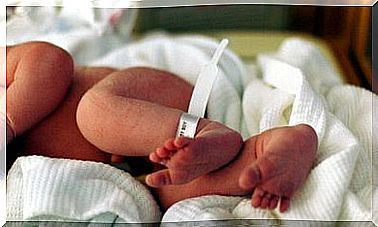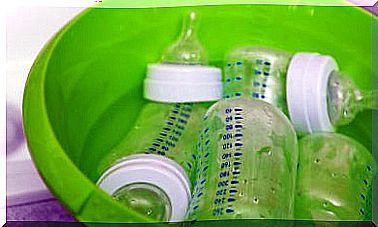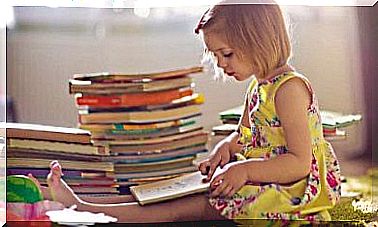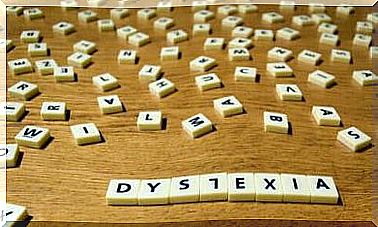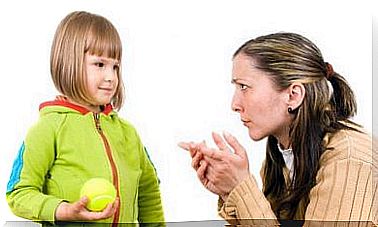The Many Benefits Of Baby Swimming
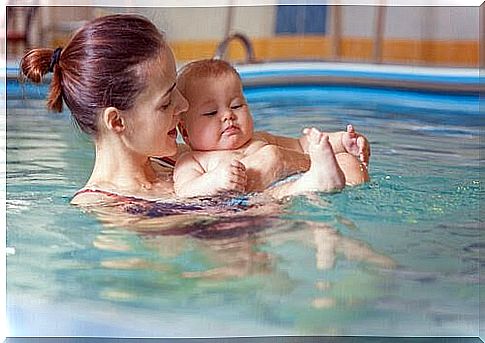
Infants need plenty of sleep and rest to develop well. However, engaging in activities when they are awake is crucial to their development. Baby swimming is a great option for stimulating your baby’s body and mind.
In addition, this water-based activity provides parents and children with the opportunity to strengthen their emotional bond. It also allows them to have fun while relaxing and learning new things.
What is baby swimming?
Although baby swimming involves a series of movements and exercises, it is more than a simple physical activity.
The goal extends beyond teaching a child to learn to swim, when his or her musculoskeletal system is ready for swimming at four months of age.
On the one hand, this relaxing activity stimulates babies in the water.
With the help of his or her parents, the little ones experience the feeling of moving in water. They also learn to float. In addition, it enables the exchange of feelings, touch and experiences.
Baby swimming classes also serve as a transitional stage. In this way, they can help the baby adjust to his new reality outside the womb.
Being in water takes them back to the safety of the womb, when they experience their first contact with the big world outside their mother’s womb.
Remember that baby swimming classes require a teacher who is an expert on the activity.
These trained instructors will show you the most appropriate movements and games. These will be tailored to the child’s age and specific needs.
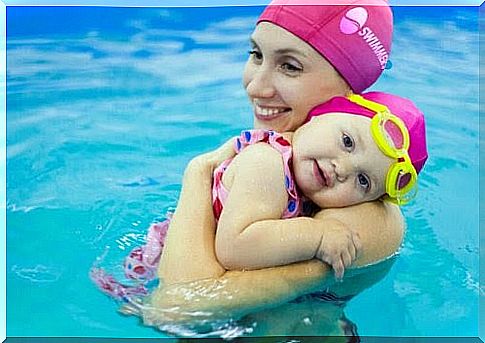
Benefits of baby swimming
This activity offers the following benefits for children:
- Psychomotor stimulation: Infants cannot walk or perform complex movements. This is because their musculoskeletal system is still immature. Baby swimming is the best way for them to experience three-dimensional movements and work with their motor skills.
- Strengthens the heart and lung system: water stimulation through play and exercises helps to strengthen the heart, lungs and vascular structure. This improves circulation. As a result, the heart rate is also improved and the oxygenation of tissues is optimized.
- Develops cognitive skills: Baby swimming promotes the child’s cognitive, emotional and social development. Water-based stimulation also helps to improve learning ability and creativity.
- Strengthens the immune system: Swimming improves physical resistance and stimulates the formation of body tissues. This benefits their immune system and reduces the risk of a number of diseases.
Connection
In addition to the physical benefits to the child, these classes also offer benefits in terms of parental interactions with the child.
- Strengthening the parenting bond: the love between parents and children is naturally unconditional. But baby swimming can help strengthen this bond during infancy. By playing these games, they can enjoy getting to know each other and sharing new tender experiences.
- The father gets a unique opportunity to connect if he participates in this positive activity. Many fathers equate it with breastfeeding for their attachment to the baby.
- Start the child’s social life in a positive, safe and playful environment: These swimming classes can be the child’s first contact with the outside world outside his or her immediate family. Later, the child will find it easier to adapt to new environments and thrive in social situations.
- Fun, relaxation and safety: These things are important for his or her well-being and proper physical and mental development.
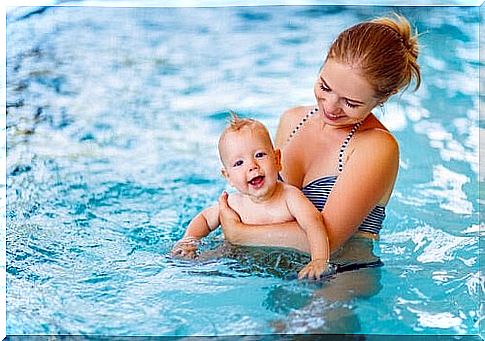
At what age can classes begin?
There are divided opinions about the best age to start baby swimming with your baby.
Earlier, experts said it was best to wait until the muscles were fully developed. This tends to happen between the ages of five and six months.
Currently, this recommendation is beginning to be reconsidered by many doctors and supporters of baby swimming. A number of researchers recognize the benefits of early water stimulation in a child’s development.
Although this activity may start early, it is important to take precautions to avoid colds, ear infections and colds.
To ensure this, consult your doctor before starting baby swimming. After assessing the child’s health and development, the doctor can comment on whether it is time.

